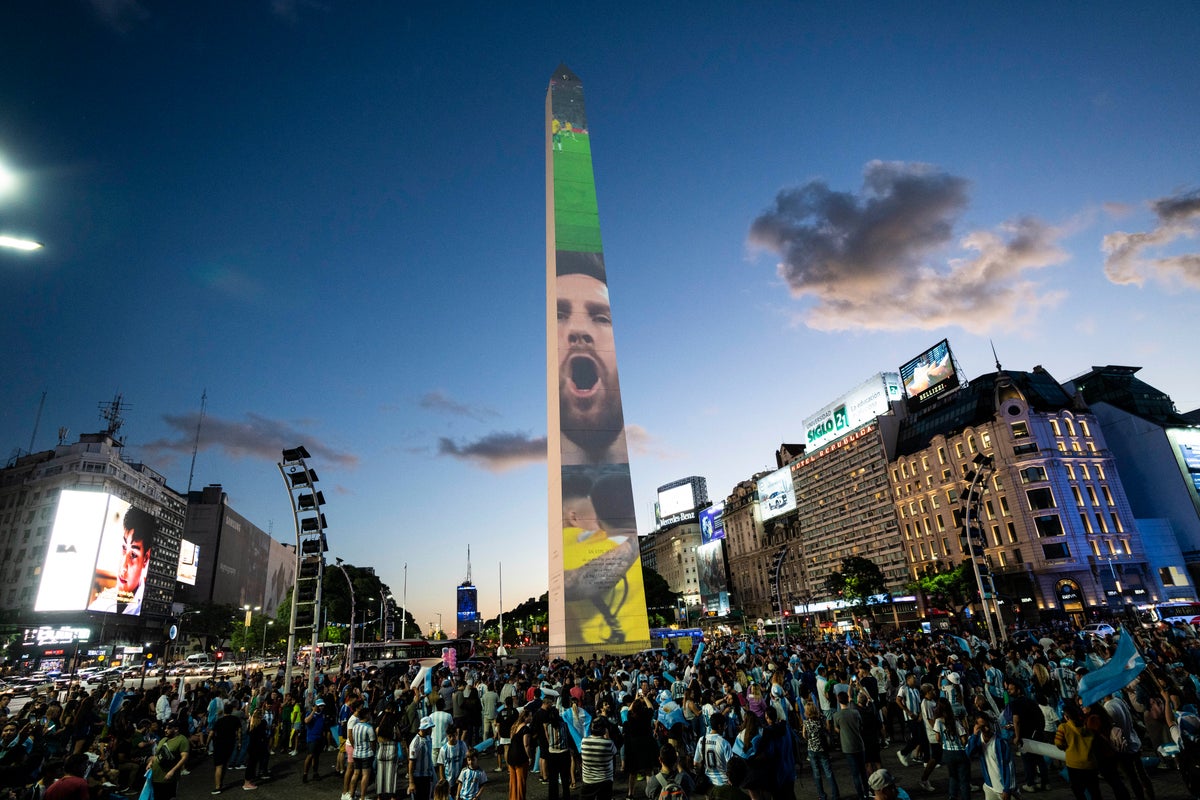
Zeyda Cipra has been so anxious all week about Argentina's match against France in the World Cup final that she couldn’t avoid talking about how she was feeling with her psychologist.
“She told me she was feeling the same way about the World Cup,” laughed Cipra, a 35-year-old economics student who also runs a pet shop in Buenos Aires. “I’m really excited, and have terrible anxiety.”
Argentines woke up Sunday ready to watch the national team play in Qatar for a third World Cup title, the first since 1986, amid a feeling of unity and joy that is rare for a country that has been engulfed in an economic crisis for years and has one of the worst inflation rates in the world, at almost 100% annually, and where almost four in 10 live in poverty.
“People are feeling a very intense happiness constantly. Cars are driving around with the flag. The whole city is dressed with the flag,” said Guillermo Ortiz, a 52-year-old podiatrist. “The crazy thing is that we’re all united and say we want what’s best, which generally doesn’t happen in this country. It’s as if soccer draws a circle and puts us all inside.”
Argentina last reached the World Cup final in 2014, when it lost to Germany, but seemingly everyone in the country agrees the sense of anticipation and excitement for this game is far higher than it ever was for that match eight years ago in Brazil.
“This has something special due to the situation of the country. The truth is that we’re going through a really, really rough time and we’re waiting for this happiness,” said Martín Ferreyra, a 46-year-old plumber. “We’re enjoying a break as a society.”
As Argentines prepared for the country's sixth World Cup final, many were ready to follow some superstitious rituals.
Cipra, for example, will watch the game by herself just as she has done with all the other World Cup matches, surrounded by her two dogs and two others she’s taking care of — all wearing the Argentina jersey.
Ortiz will be watching the game with his family and friends in his apartment, where, just like every other game, they will hang up a 25-meter (82-foot) Argentina flag.
Ortiz’s goal is to later unfurl that flag at the capital’s iconic Obelisk, the traditional site of celebrations that will undoubtedly fill up after the match regardless of whether the team led by Lionel Messi wins or loses.
“If we lose, we’re still going to celebrate,” Ferreyra said. “We know there were values and that this is a real team.”
Few, however, were talking about losing as a real possibility.
“I think this will be ours because the guys have shown they can adapt to any system of play and they can change depending on their rival,” said Guillermo Darchez, a 43-year-old photographer whose daughter plays in the youth team at Newell’s Old Boys.
Newell's is Messi’s old club in Rosario, Argentina's third-largest city.
“We’re all very hungry for victory,” agreed Pablo Jiménez, a 29-year-old waiter at a restaurant in Rosario that is owned by Messi’s family. “I think we’re going to eat them alive.”







